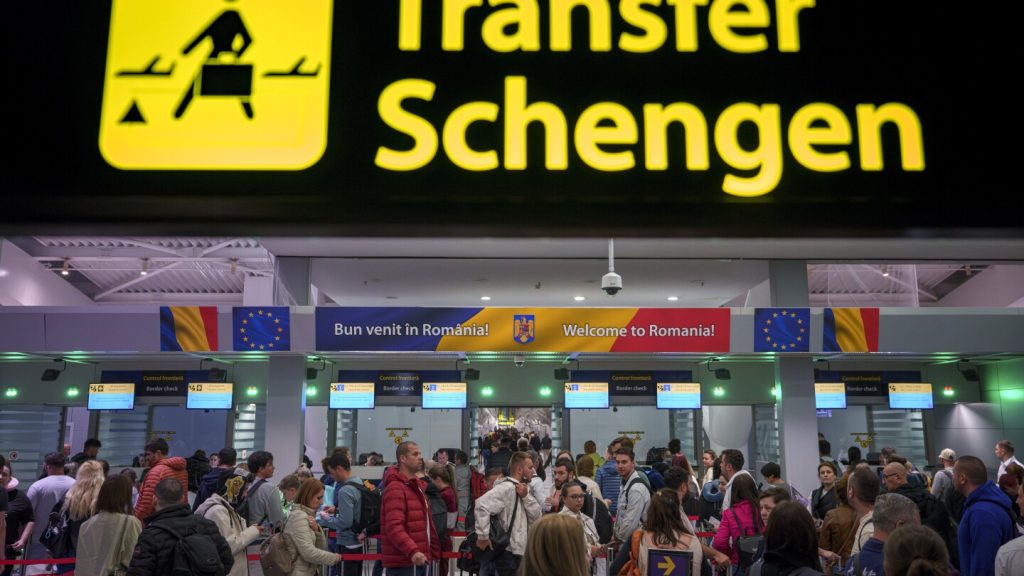Romania and Bulgaria have partially joined Europe’s ID-check-free travel zone, allowing travelers arriving by air or sea from both countries to have free access. Land border checks will remain in place due to opposition from Austria over illegal migration concerns. The Schengen Area, established in 1985, now includes 23 of the 27 EU member countries, along with Switzerland, Norway, Iceland, and Liechtenstein. EU Commission President Ursula von der Leyen hailed the change as a “huge success” for both countries and a “historic moment” for the world’s largest free travel zone.
Austria vetoed Romania and Bulgaria’s admission into the Schengen zone in 2022 but allowed Croatia full accession. Both Romania and Bulgaria joined the EU in 2007, while Croatia joined in 2013. Romanian Member of the European Parliament, Siegfried Muresan, called it an important first step that will benefit millions of travelers annually. Officials from both countries have expressed their satisfaction with the development, with Romanian Prime Minister Marcel Ciolacu calling it a “well-deserved achievement” that will benefit citizens and boost the economy.
The European Commission has confirmed that Romania and Bulgaria meet the technical criteria for full accession into the Schengen Area, but unanimous support from their partners is required. Both countries have agreed to implement random security screening at airports and maritime borders to combat illegal migration and cross-border crime. Bulgaria’s interior minister, Kalin Stoyanov, announced that Bulgaria’s full accession to Schengen is expected by the end of 2024, emphasizing the importance of deterring illegal migrants from using Bulgaria as a route to Europe.
The lifting of border controls is expected to streamline operations at Bulgaria’s four international airports, particularly in Sofia, the capital. The airport in Sofia serves as the biggest hub for Schengen flights, constituting 70% of all flights. While the eased regulations are anticipated to have a positive impact on the tourism sector, there are concerns raised by members of the European Parliament about potential long queues at the EU’s land borders. This could have implications for trade in the bloc’s single market, as well as the health and safety of drivers, especially truck drivers who frequently experience long delays at the borders of Romania and Bulgaria.
The Union of International Carriers in Bulgaria estimates that delays at the border cost the sector tens of millions of euros annually. As Bulgaria and Romania continue on the path towards full accession to the Schengen Area, officials emphasize the importance of maintaining security measures while facilitating smooth travel for citizens and visitors. The integration of these two countries into the ID-check-free travel zone represents a significant milestone in their journey towards closer alignment with the European Union and greater connectivity with the rest of Europe.


